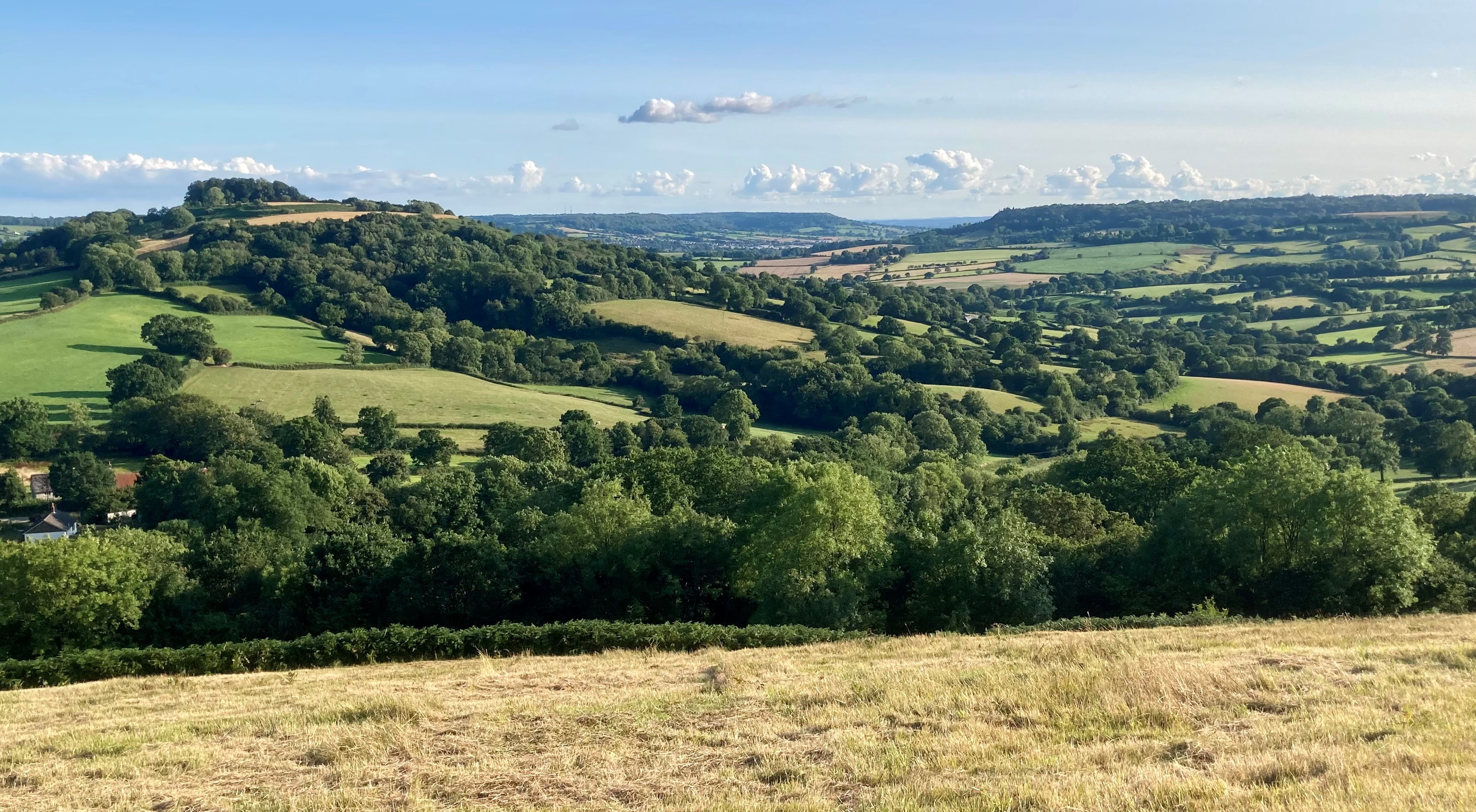A new landscape partnership for the Luppitt valley
During the summer of 2023, a group of landowners in the parish of Luppitt came together to construct a bid to Defra’s Landscape Recovery programme, supported by Blackdown Hills National Landscape.
Landscape Recovery is the top tier of the three Environmental Land Management (ELM) schemes which support farmers to deliver the best for the natural environment and sustainable agriculture. It is designed to fund landscape-scale projects through bespoke, long-term agreements, and is only offered, through a competitive bidding process, to areas that can show they have the potential to deliver substantial gains for the environment, over a long period.
There was a strong feeling that the Luppitt valley had the credentials to put itself forward for the Landscape Recovery approach, and it seemed worth giving the application our best shot. The landowners share goals to manage their farms better for nature and the wider environment whilst still producing high-quality food and a sustainable income for existing farmers and the next generation.
After a lot of community discussion and consideration, nearly 40 landowners with a combined land holding of 1,500 hectares signed up to the Luppitt bid which was submitted to Defra in September, initially in the name of the Luppitt Commons, the charity which owns the large area of common land across the parish.
To be honest, we didn’t think we stood much chance of success. This was the second year that Defra had invited bids to Landscape Recovery, having awarded grants to 22 projects in a first round in 2022 (including the Upper Axe partnership and the National Trust’s Killerton estate). They planned to award 25 across England in Round 2, and competition was going to be fierce.
So, a lot of jaws hit the floor when we received the news in November that we had been successful. Defra had received 150 applications nationally, and selected 34, with the South West of England doing best – other successful partnerships locally included Clinton Devon Estates at the southern end of the Otter valley, and West Dorset Wilding on the Brit catchment.
Having recovered from the shock, the community in Luppitt quickly took the next step of creating a new company – Luppitt Landscape Partnership CIC – to run the project. The company is wholly community-owned, with a board of directors drawn from the landowning members of the partnership.
What will the Luppitt Landscape Partnership be doing?
For its first 18 months, Luppitt Landscape Partnership will be mapping soils and wildlife habitat, analysing hydrology, discussing current farmland management and considering detailed options for the future of the whole Luppitt valley. There is a rich and diverse network of wildlife-rich habitats already in the valley, centred on Hense Moor SSSI, and a complex network of watercourses feeding the River Love. The project will also be looking at opportunities around education, training and volunteering.
Landscape Recovery is different from other schemes in that it deliberately supports a long period of evidence-gathering and discussion, to encourage landowners to think long term, be collaborative, and act on the best quality information. At the end of this period, landowner members of the partnership will be able to decide about entering long term agreements which will attract funding from public and private sources, in return for delivering environmental outcomes through ecosystem restoration, alongside continued profitable, sustainable farming.
The Luppitt project is one of several important new initiatives in the catchment of the River Otter. Alongside this and the other Landscape Recovery project led by Clinton Devon Estates at the seaward end of the catchment, there is also a ‘Climate Resilient Otter Catchment’ project just beginning, led by the Environment Agency and focused on the lower reaches of the catchment most affected by flooding in recent years. This new focus on the Otter catchment mirrors the work being led or supported by the Blackdown Hills National Landscape in the Culm and Axe catchments, emphasising the importance of a catchment approach to many of the climate and nature issues we face.






